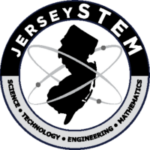🌐 How a Brilliant Physicist From a Small Town in China Changed Science Forever—and Paved the Way for Girls in STEM 🚀
In the early 1900s in Liuhe, a quiet riverside town in China’s Jiangsu Province, a young girl named Chien-Shiung Wu would walk miles to school with a notebook tucked under her arm and a mind full of questions.
Born in 1912 to progressive parents who believed that girls deserved the same education as boys, Wu was raised to think boldly in a world that often told women to stay quiet. She would go on to become one of the greatest experimental physicists of the 20th century—often called “the First Lady of Physics”—though many still don’t know her name.
From Nanjing to Nuclear Physics
After graduating at the top of her class from National Central University in Nanjing, Wu traveled to the United States in 1936. Inspired by Marie Curie, she earned her Ph.D. in physics from the University of California, Berkeley in 1940—a time when few women, let alone Asian women, were seen in physics labs.
Her expertise soon caught the attention of the Manhattan Project, the secret U.S. government research program during WWII that developed the first nuclear weapons. Wu played a critical role in developing the process of uranium enrichment for the atomic bomb. But her greatest scientific legacy came years later, in the form of a groundbreaking experiment that would shake the foundations of modern physics.
The Wu Experiment—and the Nobel Prize She Didn’t Receive
In 1956, Chien-Shiung Wu was asked to design an experiment that could prove or disprove a bold new theory: that the law of parity, a long-held belief in physics, might not hold true for weak nuclear interactions. It was the kind of idea that made headlines in scientific circles—and the kind of test only someone with Wu’s meticulous skill could carry out.
Her experiment shattered the public’s expectations. It proved definitively that parity was not conserved in weak interactions, overturning a principle scientists had believed for decades. The discovery was so significant that two of her male collaborators, Tsung-Dao Lee and Chen-Ning Yang, were awarded the Nobel Prize in Physics in 1957.
Wu was not.
The omission would sting for generations to come, but Wu continued on, with grace and brilliance, becoming the first female president of the American Physical Society and later receiving the National Medal of Science and the inaugural Wolf Prize in Physics.
“It is shameful that there are so few women in science,” she once said, “There is a misconception in America that women scientists are all dowdy spinsters. This is the fault of men.”
– Chien-Shiung Wu
Why Her Story Still Matters
At JerseySTEM, we work to close the gender and opportunity gap in STEM, especially among middle school girls and underserved youth. Chien-Shiung Wu’s life reminds us of what happens when someone is given a chance.
Even today, women are underrepresented in many areas of science. According to UNESCO, only 33.33% of researchers worldwide are women, and the percentage is even lower in physics. Role models like Wu matter, not just because they made history, but because they give young people permission to imagine themselves doing the same.
Carrying the Torch Forward
Today, Wu’s legacy lives on in classrooms, textbooks, and now, in stories like this. She was a scientist, a pioneer, and a fierce advocate for women in science. And though she may not have received the Nobel Prize, she earned something more enduring: the respect of generations and the power to inspire.
At JerseySTEM, we honor her legacy by making sure every girl who wants to build a robot, run a lab experiment, or ask “why?” gets to do just that.
Volunteer with us this fall to help inspire the next generation of innovators and changemakers!
What you can do:
- Volunteer with JerseySTEM to promote STEM equity. Apply through this link to become program instructors: https://docs.google.com/forms/d/1E2cWGJG9p0ucJn6U2BQvgkV5ABHz96BSP3Dln4ePp0M/viewform?ts=67a67315&edit_requested=true
- Advocate for inclusive policies and disaggregated data collection in your local schools.
- Mentor a student from an underrepresented AAPI background.
- Support efforts that amplify diverse voices and broaden the scope of who belongs in STEM.
At JerseySTEM, we envision a future where all young people—regardless of race, gender, or zip code—can see themselves in science, technology, engineering, and math. That future starts by telling the full story, and ensuring no community is left behind in the push for equity.
Sources:
https://www.britannica.com/biography/Chien-Shiung-Wu
https://www.epa.gov/radtown/women-radiation-history-chien-shiung-wu
https://invention.si.edu/invention-stories/diverse-voices-chien-shiung-wu-chinese-marie-curie









